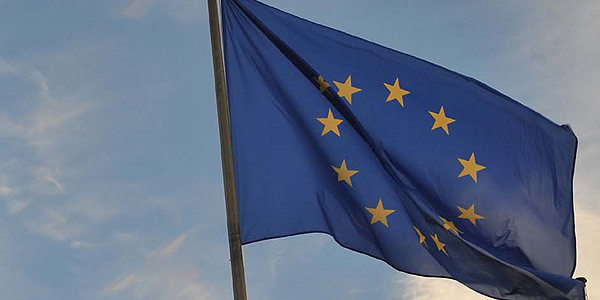ID :
226153
Fri, 02/03/2012 - 14:55
Auther :
Shortlink :
https://www.oananews.org//node/226153
The shortlink copeid
EU fails in its Turkey and Cyprus policies

BRUSSELS (A.A) - The European Union (EU) failed in its Turkey and Cyprus policy according to "European Foreign Policy Scorecard" prepared by European Council on Foreign Relations (ECFR).
EU received the lowest grades in its Turkey policy as it blocked the membership negotiations with political obstacles as well as in Cyprus due to its policy supporting insolubility.
Regarding Turkey-EU bilateral relations, the scorecard says: Bilateral relations between Turkey and the EU are still at a low point. In addition to the deadlocked accession talks, tensions over visas and Cyprus strained ties with Ankara.
The EU continues to be divided on whether Turkey should become a member or remain a "privileged partner", which undermines its leverage. As a result, bilateral relations made little, if any, progress in 2011. No new chapters were opened in the accession negotiations despite the pro-enlargement attitude of both the Hungarian and Polish EU presidencies. The preparatory work on the last three dossiers that have not been "frozen" (social policy, competition and public procurement) was not completed. Even worse, there were tensions between Ankara and Brussels about Turkey's bid to have Schengen visas lifted. Although the two sides endorsed a draft of a readmission agreement in January, Turkey refused to sign it unless the EU started dialogue leading to removal of visas, on the model of the candidate countries in the Western Balkans. Turkey dismissed concerns over the security of its borders as raised, most recently, by a report by the UK House of Commons Home Affairs Committee, said the scorecard.
It said that relations between the EU and Turkey also soured over Cyprus and gas exploration in the Eastern Mediterranean. In September, Turkey threatened that it would freeze relations with the EU during the Greek Cypriot EU presidency in July–December 2012 (later on it modified its stance, saying it would sever relations with the European Council but not with the European Commission or the European Parliament). Relations with France also hit a low point over President Nicolas Sarkozy's demand that Turkey recognize Armenian allegation about 1915 incidents. In December, Ankara temporarily withdrew its ambassador from Paris and froze political and military relations after the French National Assembly voted to criminalize denial of the allegations. Turkey's leaders continued to make obligatory references to the EU but their most pressing foreign-policy priorities are in the Arab world. In early December, the foreign ministers of the Czech Republic, Estonia, Finland, Germany, Hungary, Italy, Latvia, Lithuania, Slovenia, Sweden and the UK jointly praised Turkey's political and economic achievements and called for reinforced engagement leading to a "safer path" in bilateral relations.
Regarding Cyprus issue, the scorecard says: the EU was a bystander in relations between Turkey and Cyprus, which deteriorated in 2011 owing to the gas exploration dispute in the Eastern Mediterranean.
It noted that the EU would like to see a settlement in Cyprus, integrating the Turkish north into a federal structure, with Turkey co-operating along the way. But it has little leverage over either of the parties: Greek Cypriots are now inside the EU, Turkey's membership prospects are remote, and the Turkish Cypriots are stuck in the middle. Despite ongoing negotiations between Greeks and Turks in Cyprus, a breakthrough is not in sight. The Turkish position has not changed: no implementation of the 2005 Additional Protocol which would allow Greek Cypriot ships and aircraft into Turkey's airports and harbors, unless the EU inaugurates direct trade with the north.
The scorecard said that in 2011, relations between the EU and Turkey on Cyprus deteriorated because of the gas exploration dispute in the Eastern Mediterranean. Turkey wants Greek Cypriots to discontinue drilling pending a successful outcome of the reunification talks. It is also increasingly concerned about Israel's relationship with Greek Cypriot administration. In December 2010, Greek Cypriot administration and Israel signed an agreement on the delimitation of respective exclusive economic zones. In August, Greek Cypriots awarded an exploration contract to a consortium including US firm Noble Energy and Israeli contractors. In September, Turkish Prime Minister Recep Tayyip Erdogan vowed to send a Turkish exploratory mission escorted the Turkish navy.
ECFR's European Foreign Policy Scorecard is an innovative research project that provides a systematic annual assessment of Europe's performance in dealing with the rest of the world.





